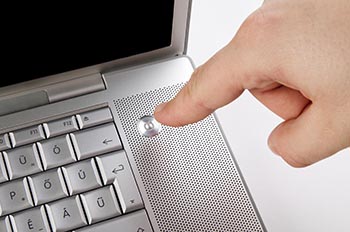Anyone not reading this on a tablet or smartphone probably has some sort of portable electronic device in their pocket or purse to stay connected. Maybe too connected, say experts at the University of Alabama at Birmingham.
 “There is more and more evidence that our electronic devices can be addicting,” said Despina Stavrinos, Ph.D., an assistant professor of psychology at UAB. “Certainly our research shows they can be dangerous.”
“There is more and more evidence that our electronic devices can be addicting,” said Despina Stavrinos, Ph.D., an assistant professor of psychology at UAB. “Certainly our research shows they can be dangerous.”
Stavrinos runs the Translational Research for Injury Prevention Lab at UAB which studies distracted driving, particularly among teens. She says people who text while driving are 23 times more likely to have a motor vehicle crash.
“We call texting while driving the perfect storm, as it takes your eyes off the road, your hands off the wheel and your mind off of concentrating on what you should be doing – which is driving,” she said. “But it’s not just texting that can be an issue. Checking e-mail, talking on the phone or accessing a map program can also be distracting and dangerous.”
Stavrinos said a little self-control is called for because our love for devices is not going away, nor should it.
“These are very valuable tools, and we’re not going to give them up,” she said. “But we have to balance the benefits of staying connected while mitigating the impact of the distractions, whether it’s while driving, walking down the street or even having dinner in a restaurant.”
Stavrinos advised that while driving or doing any task that requires full concentration, put the phone far enough away to not be tempted to pick it up at the first ding. She also suggested that distancing from devices every so often will make that easier.
“Create some device-free time,” she said. “Turn it off and put it away. Maybe at dinner time with the family or after the kids are asleep. Give yourself a break from the constant e-connection, and spend some time on personal connections with family and friends.”
Stavrinos also suggested turning off e-mail and text alerts at night while sleeping. Jenifer DeWolfe, D.O., a UAB neurologist who specializes in sleep medicine, agreed but suggested that putting the phone in another room might be better still. DeWolfe said electronics can definitely interfere with sleep.
“Using them while in bed can predispose or perpetuate insomnia,” DeWolfe said. “The blue light emitted from the screens may disrupt circadian rhythms. Phone calls and alerts not only disrupt sleep, they may induce a kind of ‘on call’ status in a person that causes anxiousness or a feeling of obligation that leads to sleep deprivation.”
DeWolfe said there is preliminary evidence that electromagnetic field exposure from cell phones may increase sleep spindle density. Sleep spindles are bursts of brain activity that occur during stage two sleep. She said more research needs to be done to determine if these results have any clinical significance.
Repetitive stress injuries can also be caused by too much smartphone use, said UAB’s Brian Dudgeon, Ph.D., chair of the Department of Occupational Therapy.
“Your kindergarten teacher was right; sit up straight because good posture is important,” Dudgeon said. “Look at the classic pose of someone using their device: slumped, shoulders forward, head craned, neck extended. It’s a posture that can put undue stress on the wrists and arms, lead to muscle imbalance and contribute to shoulder and back issues.”
Dudgeon’s advice is simple: stand up and take a break, stretch and move; text less and keep text messages shorter; and be aware of posture.
“The wrist is the most common location for nerve-compression injuries, but poor positioning of the hands while using a hand-held device can affect the entire arm,” he said.
Small screens can also cause eye strain. Dudgeon suggested that larger devices with larger screens and keyboards might be better options.
“The only fool-proof way to avoid the issues surrounding overuse of our devices is to just put them away every so often,” Stavrinos said.